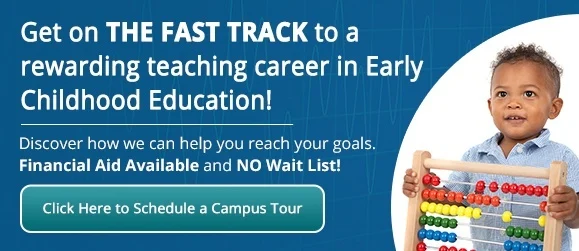Teaching Strategies for Early Childhood Education
Posted On October 19,2023
Early childhood education plays a big part in laying the foundation for a child’s future academic development. It provides the necessary skills, knowledge, and experiences that will help young children succeed in school and later in life. High-quality early childhood education that includes the following teaching strategies has been linked to numerous long-term benefits such as improved academic achievements, higher graduation rates, and better social-emotional skills.

1. Implement Play-based Learning
One of the most effective teaching strategies for early childhood education is play-based learning. Play is the natural way children learn about the world around them. It allows them to explore, create, problem-solve, and develop important skills such as communication, social interaction, and creativity.
As educators, it is important to incorporate play into your lessons and provide children with opportunities for open-ended play. This type of learning fosters curiosity, independence, and a love for learning.
2. Practice Two-Way Communication
Effective communication is key in early childhood education. It is essential to establish a strong relationship with your students and their families, as it creates an environment where children feel safe, supported, and motivated to learn. Two-way communication involves not only listening to children but also encouraging them to express their thoughts and ideas. This can be done through open-ended questions, group discussions, and creative activities.
3. Use Multi-Sensory Instruction
Young children learn best when they are actively engaged in hands-on activities that stimulate all of their senses. Multi-sensory instruction involves using visual, auditory, and tactile materials and activities to teach a concept. For example, instead of solely relying on worksheets or lectures to teach about shapes, early childhood educators can incorporate shape-sorting games, songs about shapes, and opportunities for children to touch and feel different shapes. This approach allows for a deeper understanding of the material and caters to the diverse learning styles of young children.
4. Provide Positive Reinforcement
Positive reinforcement is a powerful tool for promoting positive behavior and learning in early childhood education. Instead of focusing on punishment and discipline, educators can use praise, rewards, and positive feedback to encourage good behavior and academic achievement. This approach helps create a nurturing and supportive learning environment where children feel valued and accomplished.
5. Establish Rules
In any learning environment, rules are essential for maintaining order and ensuring a safe and respectful atmosphere. With young children, it is important to establish simple and clear rules that they can easily understand and follow. These rules should be positively worded and enforced consistently. By setting boundaries, early childhood educators can help children develop self-discipline, responsibility, and respect for themselves and others.
Start Your ECE Process Now6. Encourage Collaborative Learning
Collaborative learning involves working together with others to achieve a common goal. In early childhood education, it is important to provide opportunities for children to interact and learn from one another. This can involve group projects, discussions, and peer-to-peer teaching. By fostering collaboration, children develop important social skills such as communication, teamwork, and empathy.
7. Offer Individualized Instruction
Every child is unique and learns at their own pace. Therefore, it is important for preschool teachers to provide individualized instruction to meet the diverse needs of their students. This can be done through differentiated instruction, where educators adjust their teaching methods and materials based on each child’s abilities and interests. By catering to each child’s learning style, educators can ensure that every student is challenged and engaged in the learning process.
8. Provide Emotional Support
In addition to academic development, early childhood education also plays an important role in fostering emotional development. As teachers, it is important to create a supportive and nurturing environment where children can learn about their emotions, express them in healthy ways, and develop resilience. This can involve activities such as storytelling, mindfulness exercises, and discussions about feelings.
9. Implement Hands-On Experiences
Young children are naturally curious and learn best through hands-on experiences. As such, it is important for early childhood educators to provide a variety of hands-on activities that allow children to explore and discover new concepts and ideas. For example, you could start a small garden with your students to teach them about plant life, or conduct a science experiment to learn about the properties of water. These hands-on experiences not only make learning fun but also promote critical thinking and problem-solving skills.
10. Reflect On Your Teaching Strategy
Reflection is a crucial part of any teaching strategy. By taking the time to reflect on your own teaching methods and practices, you can identify areas of improvement and adjust your approach accordingly. It is also important to encourage children to reflect on their learning, as it helps them understand their strengths and weaknesses.
Become an Early Childhood Educator
There are various effective teaching strategies for early childhood education that can help create a positive and engaging learning environment. By incorporating these strategies into your lesson plans, you can ensure that every student has the opportunity to reach their full academic potential.

Successful early childhood educators continuously explore and implement new and effective teaching methods in order to provide the best learning experience for their students. With a strong foundation in early childhood education, children can develop important skills and attitudes that will benefit them throughout their life. If you’re interested in becoming an early childhood educator, contact Athena Career Academy to learn more about enrolling in our Early Childhood Education degree program.